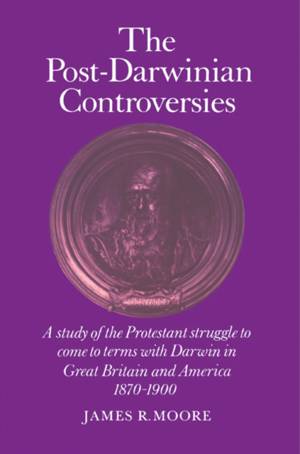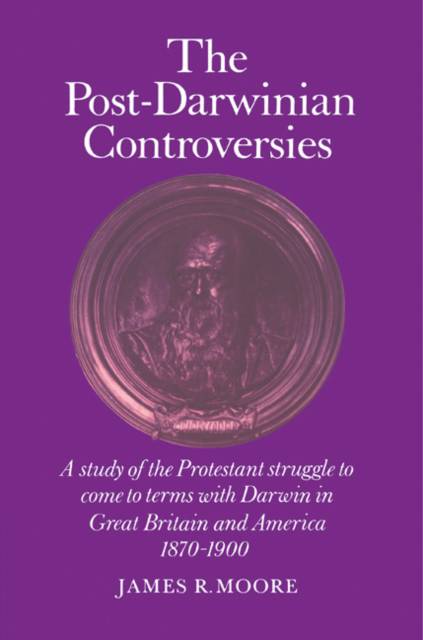
- Afhalen na 1 uur in een winkel met voorraad
- Gratis thuislevering in België vanaf € 30
- Ruim aanbod met 7 miljoen producten
- Afhalen na 1 uur in een winkel met voorraad
- Gratis thuislevering in België vanaf € 30
- Ruim aanbod met 7 miljoen producten
Zoeken
The Post-Darwinian Controversies
A Study of the Protestant Struggle to Come to Terms with Darwin in Great Britain and America, 1870-1900
James R Moore, Moore James R
Paperback | Engels
€ 128,45
+ 256 punten
Omschrijving
The Post-Darwinian Controversies offers an original interpretation of Protestant responses to Darwin after 1870, viewing them in a transatlantic perspective and as a constitutive part of the history of post-Darwinian evolutionary thought. The impact of evolutionary theory on the religious consciousness of the nineteenth century has commonly been seen in terms of a 'conflict' or 'warfare' between science and theology. Dr. Moore's account begins by discussing the polemical origins and baneful effects of the 'military metaphor', and this leads to a revised view of the controversies based on an analysis of the underlying intellectual struggle to come to terms with Darwin. The middle section of the book distinguishes the 'Darwinism' of Darwin himself amid the main currents of post-Darwinian evolutionary thought, and is followed by chapters which examine the responses to Darwin of twenty-eight Christian controversialists, tracing the philosophical and theological lineage of their views. The paradox that emerges - that Darwin's theory was accepted in substance only by those whose theology was distinctly orthodox theology and of other evolutionary theories with liberal and romantic theological speculation.
Specificaties
Betrokkenen
- Auteur(s):
- Uitgeverij:
Inhoud
- Aantal bladzijden:
- 528
- Taal:
- Engels
Eigenschappen
- Productcode (EAN):
- 9780521285179
- Verschijningsdatum:
- 30/10/1981
- Uitvoering:
- Paperback
- Formaat:
- Trade paperback (VS)
- Afmetingen:
- 152 mm x 229 mm
- Gewicht:
- 766 g

Alleen bij Standaard Boekhandel
+ 256 punten op je klantenkaart van Standaard Boekhandel
Beoordelingen
We publiceren alleen reviews die voldoen aan de voorwaarden voor reviews. Bekijk onze voorwaarden voor reviews.











